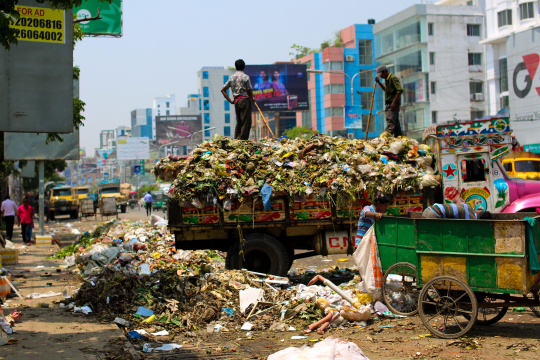This research analyses the impact of retailer interventions focusing on the promotion of reusable bags to reduce plastic bag consumption. For this purpose, retail outlet data for March 2018–February 2020 was used. The retail outlet data was analyzed using a panel fixed effects model to evaluate the impact of three treatments on plastic and reusable bag consumption in South Africa. Findings revealed that Treatments 1 (a monetary intervention based on giving reusable bags away for free), and 2 (a non-monetary intervention framed around a plastic-free July campaign), significantly increased reusable bag uptake and reduced plastic bag consumption, while Treatment 3 (a monetary intervention involving a subsidy on reusable bags) increased reusable and plastic bag sales. The findings contribute to the literature on the effectiveness of non-monetary nudges (T2). The latter is more efficient than the monetary incentives (T1 and T3). The results also agrees with the literature on the ineffectiveness of subsidies (T3) for the purpose of discouraging the consumption of plastic bags. The results confirmed that plastic bag consumption is habitual in South Africa. Based on these findings, policy recommendations were made that public campaigns and other behavioral nudges should be considered more effective in addressing the consumption of plastic bags than subsidies on reusable bags. In addition, because of the revealed low level of reuse of both plastic and reusable bags, the use of reminders to reuse bags should be considered and researched in order to modify consumer behavior in South Africa.
EfD Authors
Country
Sustainable Development Goals
Publication reference
Abiola, B. A., Visser, M., & Daniels, R. C. (2023). Addressing plastic bags consumption crises through store monetary and non-monetary interventions in South Africa. Frontiers in Sustainability, 3. https://doi.org/10.3389/frsus.2022.968886



